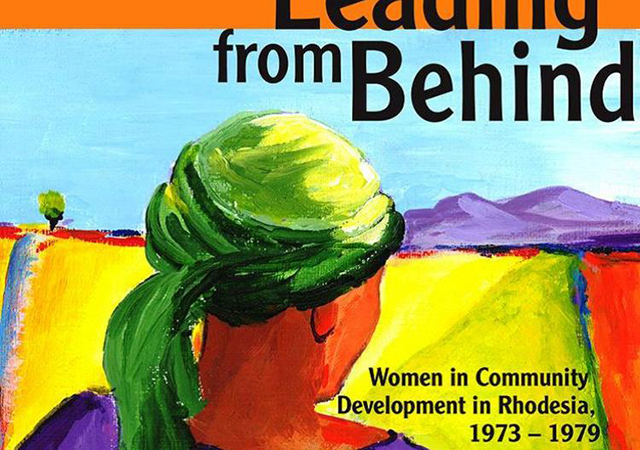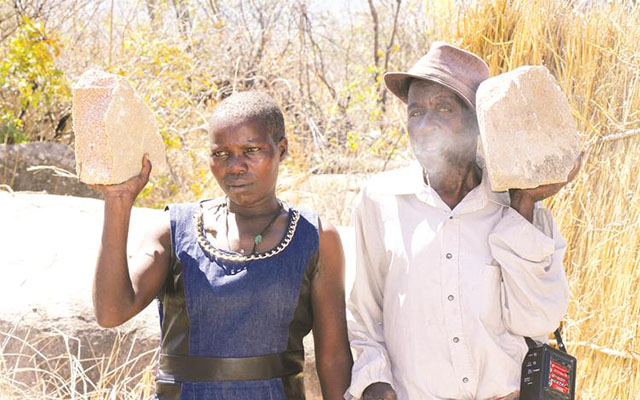Book celebrating rural development heroines launched

Beaven Tapureta Bookshelf
Women who played a pivotal role in rural community development during the armed struggle have been acknowledged in a mighty 600-page book titled “Leading from Behind: Women in Community Development in Rhodesia (1973-1979)”.
The book, published by Weaver Press with support from the Embassy of Switzerland in Zimbabwe, was authored by Maia Chenaux Repond who worked as the provincial community development officer (women) for Mashonaland South in the Ministry of Internal Affairs in the 70s.
That this huge chest of words celebrates the heroines of community development in the pre-independence era was reflected at the well-attended official launch held last week at the Gallery Delta in Harare.
Community development is primarily non-political and according to the United Nations, it is a “process where community members come together to take collective action and generate solutions to common problems”.
And history has it that community development was made into a major policy and adopted by the then Rhodesian government in 1962 to enhance rural development. However, the war in the 70s put the community developers’ work and lives (and those of the villagers) at risk but their non-political mission to empower rural women had to be fulfilled and the book is but a celebration of their achievements.
Guest of Honour Fadzai Mukonoweshuro, who is a senior operations officer at the World Bank, said the book presents vividly a part of history about Zimbabwean women that needs to be acknowledged. She highlighted that where there is no segregation it is possible, as shown in the book, to conquer community problems.
“‘Leading from Behind’ provides an opportunity for young women of our era to draw parallels and see how this good work can be carried forward,” said Mukonoweshuro.
She later led a celebratory group photo session for the women and representatives of those deceased who worked with Maia in the 1970s. Before declaring the book formally launched, the Ambassador of Switzerland in Zimbabwe HE Mrs Ruth Huber said she was very pleased to see the final publication.
“There are several compelling reasons for which I thought the Embassy of Switzerland should really make a contribution to make this book possible and seeing the final product I am proud that we played our role,” she said.
The Ambassador also stressed the book will be made available in the libraries of this country and in some selected university institutes in Switzerland so that students, researchers and whoever is interested can benefit from Maia’s experience.
Maia Chenaux Repond could not hide her excitement for at last witnessing this part of women’s history somehow hitherto “untold”, now being unveiled to the young generation.
Her initial worry was that vital records about community development work in Rhodesia had been unavailable at the National Archives of Zimbabwe but she said she is glad the gap has been filled. She has now donated some of the records to the National Archives.
In separate brief interviews with Bookshelf some of the women who feature in “Leading from Behind” shared poignant memories of their development work and said they feel satisfied with the contribution they made to the welfare of rural women who, because of the war, were now staying in “protected villages” where life was difficult. They imparted to the women a self-dependent spirit and skills like dressmaking, bakery, and many others.
Mrs Elizabeth Makuzva joined community development when she was only a rural girl in her 20s. After training in Domboshava and Masvingo, she was posted to Mutoko with others under Maia. She says her work with rural women in the war-torn Mutoko also involved dodging landmines and she will always remember one day when she escaped death by a whisker.
As a trainer, Gogo Betty Mtero travelled throughout the country, meeting rural women and identifying those who could be trained as trainers. “We met many challenges because it was war time. But as black people we would sit down and remind each other that our work is not political,” she said.
Now 85 years old, Gogo Mtero currently leads an organisation called National Federation of Grassroots Women’s Clubs – Zimbabwe which trains women how to run different self-help projects.
“Our children are under pressure. There is serious need for young women to form social clubs where people like us can go and give talks. But also, parents have forgotten what community development means. They have been badly influenced by urbanization – you see each child is given a bedroom and television set and nobody monitors what the kids are watching! Yet education starts at home,” said Gogo Mtero.
Also present at the launch was Harare West Member of Parliament Ms. Jessie Majome who commended the work of these women and said efforts still need to be done to strengthen community responsibility and good citizenship in every aspect of people’s lives.









Comments